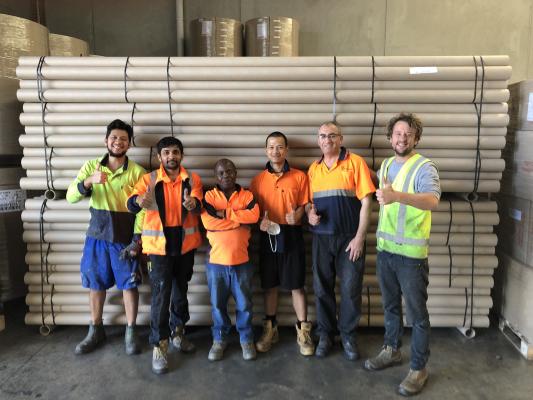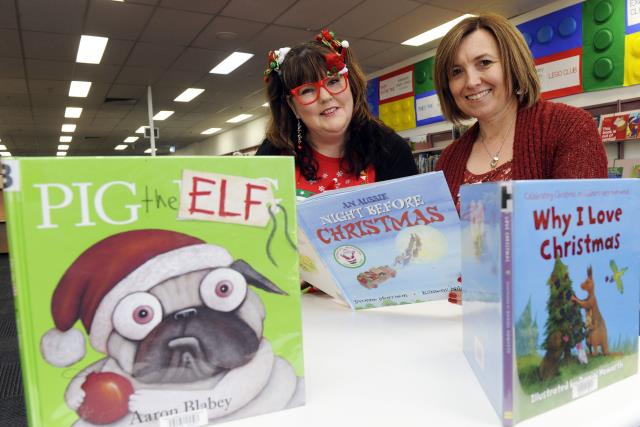A US Marine and tech expert has set up a paper-tubing factory in Laverton North to help refugees train and find work.
Douglas Abdiel, who also works for Google and advises the federal government on cyber security, is an active member of US Marine Corps Reserves.
About four-and-a-half years ago, Mr Abdiel purchased the P&G Paper Tubes building on Agosta Drive, with the intention of providing job opportunities for refugees and asylum seekers, including those who could not speak English.
“Quite simply, after spending some time deployed in Haiti and Afghanistan, I realised that any rational person would do what these folks have done, try to find a better life for themselves,” Mr Abdiel said.
Mr Abdiel said he put in 20-hour weeks across 12 months, around his other full-time work, to modernise the factory.
His hard work has paid off, with the factory now generating over $2 million per year in revenue.
It has eight full-time staff and has given 26 refugees their first job in Australia.
P&G Paper Tubes works with organisations that assist refugees and asylum seekers, such as the Brotherhood of St Lawrence, AMES and the Asylum Seekers Resource Centre, to find employees.
“In the cases where I am able to meet them (the workers), they have been very grateful to have a workplace where they are safe, well treated, and where they share in the profits they create,” Mr Abdiel said.
Mr Abdiel said many of the P&G staff members have also gone on to find other employment.
At the moment, P&G Paper Tubes’ workers speak several languages including Amharic, Arabic, Somali, French, Mandarin, Tagalog and English.
P&G has also developed safety induction and workplace training, with videos on YouTube that can generate captions in more than 100 languages.
The training is available free-of-charge to other companies which want to hire refugees.
Mr Abdiel has established another organisation, P&G Purpose, a not-for-profit that provides job skills and employment to people who are “underserved” in the Australian employment market such as refugees and veterans.
P&G Purpose will pay 75 per cent of the fees for short courses, such as a license or white card, needed to help these people become qualified for many types of entry-level jobs.
“If there’s any other barriers to employment that we can knock down for other employers, then please, reach out,” Mr Abdiel said.
Last year, P&G Purpose worked with about 15 people, mostly women who live across Melbourne, to help them make and sell masks from home during the pandemic lockdowns.
Details: https://pgpapertubes.com.au/, join.pgpurpose.org/facemasks or enquiries@pgpurpose.org







